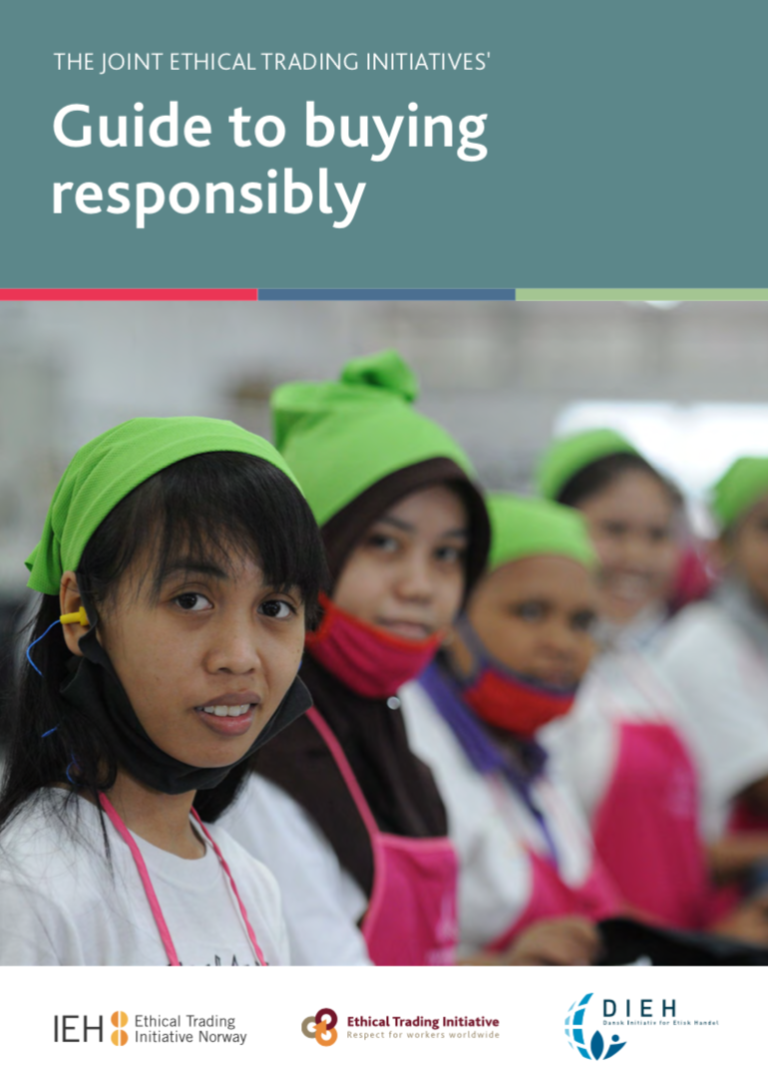This is a guide for organizations seeking to develop and implement responsible purchasing practices. It draws on the findings of a major supplier survey conducted by the Ethical Trading Initiatives of Denmark, Norway and the UK (referenced throughout as the ETIs) and the International Labour Organization (ILO) in 2016, delivers robust insights and analysis, and provides comprehensive, practical recommendations for senior managers and buyers. The survey was partly funded by the German Federal Ministry for Economic Cooperation and Development (BMZ).Through the survey, we sought the views of suppliers to UK, Denmark and Norway-based member companies across multiple sectors, and of members of SEDEX.i In evaluating almost 1,500 suppliers’ responses, we uncovered distinct trends relating to how customers’ purchasing practices affect suppliers’ ability to plan production effectively, maintain efficiency and support workers’ rights. Focusing primarily on manufacturing supply chains, the guide also shares insights from the ETIs, their members, trade unions and specialist NGOs, such as Traidcraft and Oxfam. It builds on the existing purchasing practices guides of ETI Norway and ETI UK, provides a successor to the popular Suppliers Speak Up’ guide, and incorporates the Danish ETI’s work on purchasing practices.

